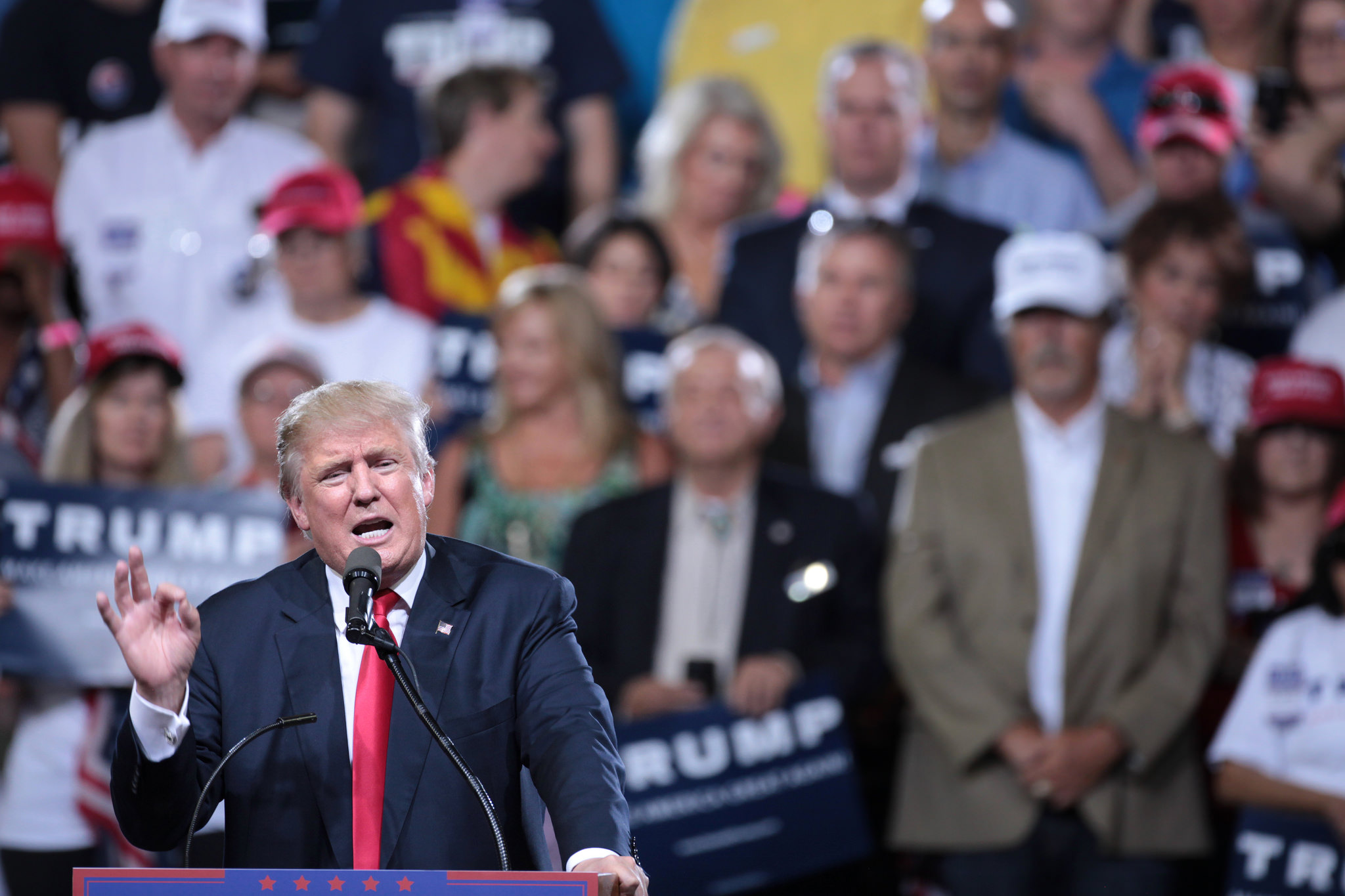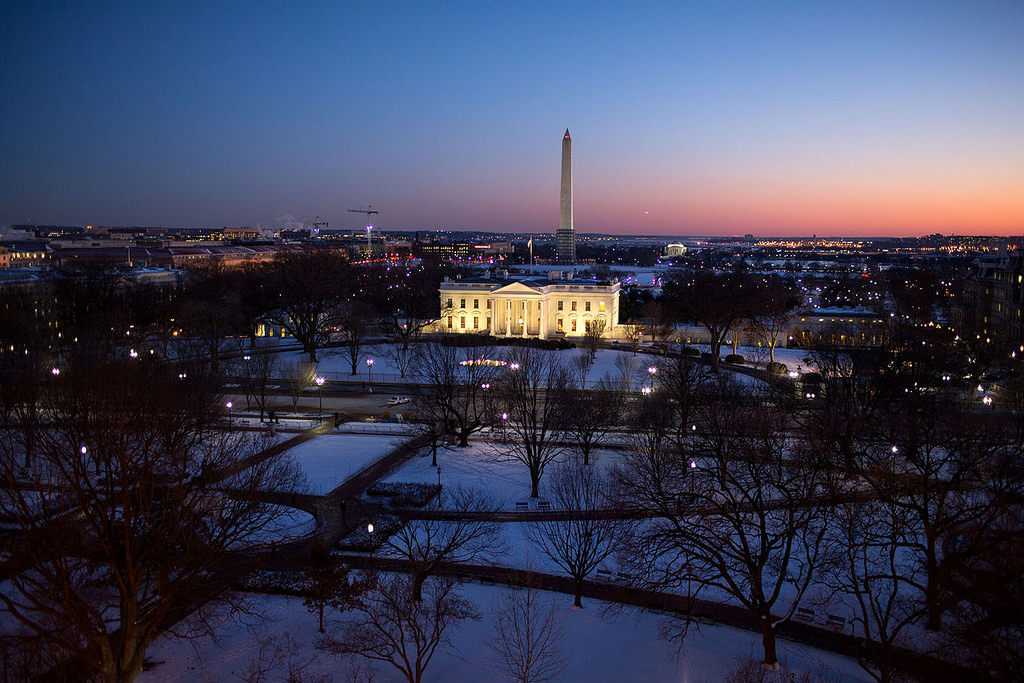By Cullen S. Hendrix for Denver Dialogues.
In explaining the election of Donald Trump, two central narratives have emerged. The first is that Trump’s surprising victory was fueled by a backlash against globalization and the economic anxieties – and real, concentrated losses – that have come with it. The second is that Trump’s victory was fueled by white Americans fearful of threats to their relative status from within (increasing racial and religious diversity) and without (globalization and immigration). Both positions have their proponents. Both positions would have implications – with varying degrees of ugliness – for anticipating the future of US trade and immigration policy. But which is correct?
A recent article by Diana Mutz carefully analyzes data from the 2012 and 2016 presidential elections and comes down resolutely in favor of the second interpretation: “White Americans’ declining numerical dominance in the United States together with the rising status of African Americans and American insecurity about whether the United States is still the dominant global economic superpower combined to prompt a classic defensive reaction among members of dominant groups.” According to Mutz, the psychological value of seeing oneself as part of a dominant group – white, Christian, and male – trumped economic concerns in motivating Trump supporters.
This article has received a phenomenal amount of media attention and already elicited a response (and a response to the response). I’m not going to wade into the relative merits of these responses or make a call as to which of these factors might have been more important – my personal take is that it’s both. Rather, I’m interested in using these findings as a window into what we talk about when we talk about status – and why separating perceived status from material, “real” interests is probably impossible.
The social psychological literature on status threat – or at least my outsider’s read of it – emphasizes status’ symbolic, rather than material, meaning. That is, status is detached from economic or other “real” concerns about political and social outcomes. Humans have material interests, which are presumed to be “real” and therefore acceptable, logical, and not based on irrational xenophobia or fear. Per Mutz: “The declining white share of the national population is unlikely to change white Americans’ status as the most economically well-off racial group, but symbolically, it threatens some whites’ sense [emphasis mine] of dominance over social and political priorities.” Similarly, with respect to China, “To the extent that the public views the global economy in zero-sum terms [emphasis mine], the rise of countries, such as China and India, represents a threat to America’s dominant status.”
In both instances, Mutz characterizes these concerns as essentially divorced from hard reality. Because white Americans’ relative demographic decline is unlikely to affect their status as the most economically well-off group, the threat is to their sense of dominance over social and political priorities, rather than their actual dominance. Similarly, because the global economy is not zero-sum, that the public views it as zero-sum is evidence that public perceptions are based on irrational prejudices: The China “threat” is not really a threat to American economic wellbeing or security, but rather a threat to the kind of “We’re #1” sentiment normally found on foam fingers.
But are these status threats actually divorced from material interests and political consequences? I’ll punt on the question regarding white ethnic dominance, which I’ve written about before. My take here is simply that Americans – and American social scientists – tend to view racial and ethnic dynamics here as sui generis, rather than a case or set of cases among many cases of ethnically diverse and/or divided societies, and that the cross-national literature suggests demographic decline in the dominant ethnic group is politically destabilizing and thus has real consequences. If you buy the argument that US political and economic institutions perpetuate white male Christian dominance and disadvantage women and minority groups – and it’s a hard argument not to buy – then you already accept the premise that the political power to shape (and reshape) these institutions matters. It’s not just about status.
Regarding China, the idea that concerns about China should be interpreted primarily as evidence of status threat is almost absurd. China’s economic rise has come at the cost of real job losses for some US workers and communities, even if those losses are offset in the aggregate.
And while I’m no China hawk – indeed, I’ve argued broader Chinese engagement in the global economy is mostly a good thing – concerns about China aren’t exactly the stuff of fairy tales. After Russia, China is the second most-mentioned country in the 2018 Worldwide Threat Assessment of the US Intelligence Community. China has the world’s largest standing army, the second-highest military spending, and has achieved power parity with the United States in East Asia, a region in which tensions between China, the United States, and several US allies run high. I don’t view a large-scale conflict between the United States and China as very probable, but there are plenty of people smarter than me who do. If and when bodies start coming home in boxes, the “China as status threat” narrative will not have aged well. It’s telling that at no point does the Mutz article – or any of the linked responses thereto – discuss the security implications of China’s rise independent of its economic consequences for American voters.
Ultimately, we wind up where we started: was Trump’s election the result of thwarted material interests or status concerns among threatened white voters? While I have no doubt racist, xenophobic attitudes played a large role in the 2016 election, I’m not convinced these concerns are just about status – or that status can be so neatly separated from “real” material concerns. The world is a messier place than that.







2 comments
Thanks! I agree with your conclusion on both dynamics having a hand in our latest political outcomes. In particular, your acknowledgement of the zero-sum attitude effect is valuable. I have been wondering, how is it that some people maintain this position while others do not? Obviously, not all white males do. In general, I think many powerful people know full well this is not the case of our global economy, but the current structures favor them, so they are happy to promote this concept to those unfamiliar with the real complexities of the system. The resulting phobias, in turn, maintain the dominant positions of power held by the dwindling traditionally elite populations. This fear-based strategy is divisive and dangerously short termed, imho. I’d like to hear more about your thoughts on the US potential to maintain its exceptionalism/sui generis nature under these conditions.
Christina,
Thanks for your close read and the question. Yes, much of this discourse seems to presume elites – like Trump – are not aware of these fears and not willing to capitalize on them. That is, this discourse operates as if these concerns are static and driven by bottom-up processes, rather than top-down elite manipulation. This is a good point and probably points to the need to understand better the role elites play in shaping threat perceptions.